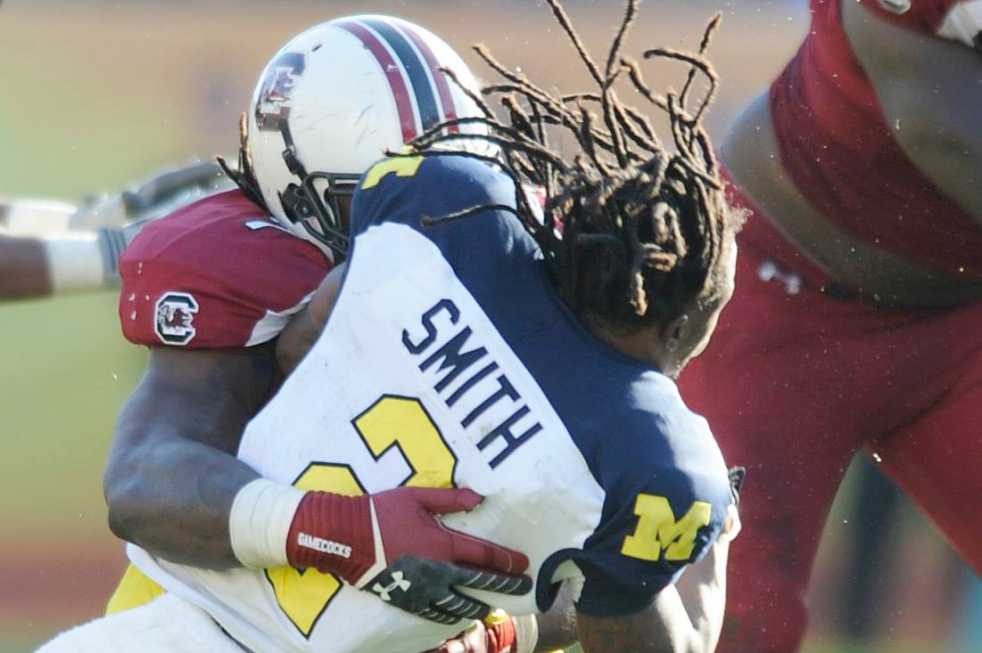Almost ten months ago, the New Year of 2013 was hailed in with the pattering sounds of fireworks across the globe, the nostalgic melody of Auld Lang Syne and one infamous shot heard ‘round the world.
Yes, sports fans, it has been nearly ten months since that fateful day when South Carolina defensive end Jadeveon Clowney mercilessly pummeled Michigan running back Vincent Smith in the waning minutes of the Outback bowl and re-ignited the Gamecock offense to seal the game 33-28. Since then, “The Hit” has been replayed on news agencies’ clips and newsreels for months and etched into the minds of football enthusiasts everywhere.
But, as with all breakout athletes, a rather odd phenomenon tends to occur just as these phenomenal players come back down to Earth post god-mode: the “hype train.” Granted, while Clowney’s fame had been steadily growing from the time he played high-school football as a 6’3’’ 200-pound 13-year-old, the acclaim for the likely Heisman Candidate had reached otherworldly levels. Although Clowney may have had a less than impressionable start to the 2013 season, do not get me wrong—the star defensive end will indubitably produce a wicked highlight reel again before he enters the 2014 NFL Draft.
In fact, I am more than willing to buy into Clowney being a once-in-a-decade commodity at his position and potentially a big difference-maker at the next level of his game. It’s just this unreasonable expectation for him to consistently play every game at this high caliber which truly irks me.
I understand that football (or any sport) at the collegiate level is the proving ground for those rare breeds of athletes and playmakers who strive to make an impact at a professional level of play.
More often than not, however, those expectations exceed themselves and leave fans, scouts and players disappointed, as reality comes up short of their Herculean fantasies.
With regards to Clowney’s performance against Georgia (to hell with them!) a few weeks ago: Clowney was more often than not reduced to a non-factor. The Bulldog offense either moved the ball on the opposite side, double teamed him when they came his way or created options for Murray to dispense of the ball when Clowney penetrated the backfield.
Regardless, fans continue to forget that football (and many team sports) demands heavy and thorough strategizing by coaches who will make sure potential playmakers are rendered as non-factors—which is exactly what the Georgia’s staff largely did.
In the end, these spark plug performances, combined with an over-eager fan-base, create unjustified expectations and an unreasonable amount of attention, both of which affect players’ psyches and their on and off field performances (please see Johnny Manziel).
Just like any train that bears too much load, Clowney’s is bound to crash at some point, but, undoubtedly, he will rebound and forge a fantastic season—because that’s exactly what phenomenal athletes do. Just take a look at Adrian Peterson: everyone said he was done after tearing his ACL (a different kind of hype train), but he came back the following season to come within nine yards of dashing Eric Dickerson’s single season NFL rushing record.
So yes, hype trains do come and go and are rather annoying, but, ultimately, they serve to remind us all of those special moments when certain athletes transcend the rest.
For Michigan running back Vincent Smith though, Clowney’s special moment will most likely stick with him a little while longer than his helmet did.
